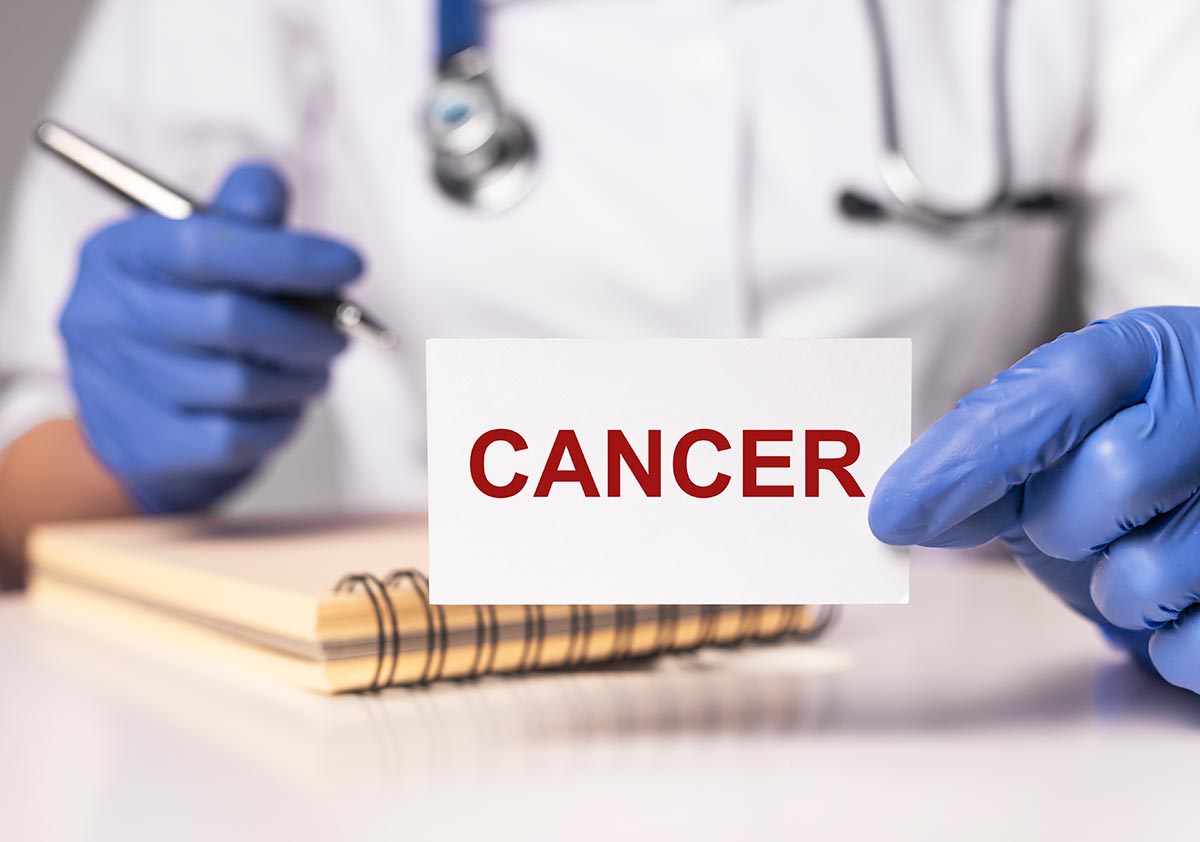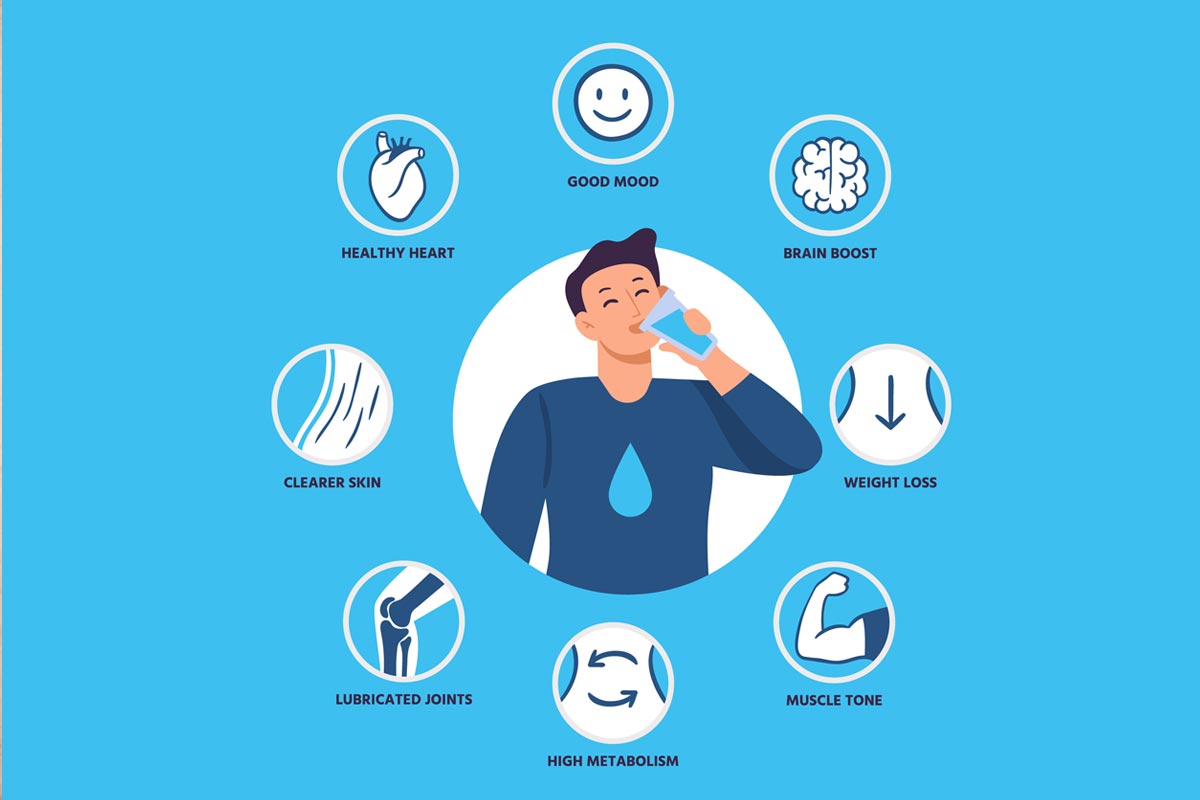
Cancer Symptoms to Be Aware Of Early On
Cancer Symptoms to Be Aware Of Early On
Cancer is defined as the uncontrollable growth of normal cells that have the ability to penetrate and destroy normal body tissues. Cancer frequently has the potential to spread throughout your body.
Cancer is known to be the world's second leading cause of death. However, thanks to advancements in cancer screening and treatment, survival rates for many types of cancer are improving.
Here are some symptoms that may indicate an underlying cancer and should be evaluated by a doctor.
Skin Alterations
A new blemish on your skin, or one that changes size, shape, or color, could be an indication of skin cancer. Another sign is a spot that does not match the rest of your body. If you notice any unusual marks, consult a doctor right away. If necessary, the doctor will perform a biopsy to determine whether the cells are cancerous or not.
Persistent Cough
A persistent cough is very unlikely to be a sign of cancer in a nonsmoker. Upper Airway Cough Syndrome (UACS), asthma, acid reflux, or an infection are the most common causes. However, if your cough persists or you cough up blood, especially if you are a smoker, see a doctor right away. He or she may test the mucus from your lungs or perform a chest X-ray to look for lung cancer.
Breast Modifications
The majority of breast changes are not cancerous. It is still critical to discuss them with your doctor and have them checked out. Inform your doctor if you notice any lumps, changes in your nipple or discharge, redness, thickening, or pain in your breasts. The doctor will examine you and may recommend a mammogram, MRI, or biopsy.
Excessive bloating
You may feel full and bloated as a result of your diet or even stress. However, if it does not improve or if you experience fatigue, weight loss, or back pain, see a doctor right away. Women who experience persistent bloating may be suffering from ovarian cancer. To determine the cause, the doctor can perform a pelvic examination.
Urine passing issues
Many men experience urinary issues as they age, such as the need to urinate more frequently, leaks, or passing a weak stream. These are usually symptoms of an enlarged prostate, but they can also be signs of prostate cancer in some cases. Consult a doctor and address the problem as soon as possible to avoid complications.
Inflamed Lymph Nodes
Lymph nodes are small, oval-shaped organs made up of immune cells that attack and kill foreign invaders like viruses and bacteria. Swollen lymph nodes are frequently indicative of the body's fight against an infection, such as a common cold or a throat infection. However, some cancers, such as lymphoma and leukemia, cause lymph node swelling. Consult a specialist right away to determine the underlying cause of the swollen lymph node.
<Testicular Alterations
If you notice or feel a bulge or swelling in your testicles, see a doctor right away. The most common symptom of testicular cancer is a painless lump. A man may simply feel a heavy sensation in his lower belly or scrotum, or believe his testicles are larger than usual. The doctor will examine the area physically and may order an ultrasound scan to see if there is a tumor or other cause for concern.
Swallowing Difficulties
Occasionally, a common cold, acid reflux, or even some medications can make swallowing difficult. If it does not improve with time or medication, see a doctor right away. Swallowing difficulties can also be a sign of cancer in the throat or esophagus. The doctor will perform some tests, such as a barium X-ray, in which you will swallow a fluid to help the image of your throat.
Unexplained Vaginal Bleeding
Bleeding that is not part of your menstrual cycle can be concerning if you have fibroids or take birth control pills. Inform your gynecologist if you have infrequent bleeding between periods, after sex, or if you have pain, fatigue, or fever. The doctor will want to run some tests, such as an ultrasound scan, to rule out the possibility of uterine or cervical cancer.
Problems with the Mouth
Most changes in your mouth are minor, ranging from bad breath to cold sores. However, if you have a lump in your cheek, difficulty moving your jaw, pain in your mouth, or white/red spots or sores in your mouth that do not heal after a few weeks, especially if you smoke or chew tobacco, see a doctor right away because it could be a sign of oral cancer.
Loss of Weight
Weight loss can occur if lifestyle habits are changed, such as changing one's daily diet or beginning an exercise regimen. Weight loss can also occur as a result of other stress-related or hormonal imbalances, such as thyroid issues. Consult a doctor if you experience sudden weight loss without any of the above factors, as it could be a sign of cancer in the stomach, pancreas, or any other type of cancer.
Indigestion or heartburn
Everyone experiences this burning or gassy sensation from time to time, which is often caused by lifestyle factors such as irregular eating habits or high stress levels. If your indigestion persists despite changes in your lifestyle, your doctor may order some tests to identify and analyse the underlying cause and rule out the possibility of stomach cancer.
Tiredness
Fatigue is primarily defined as a feeling of exhaustion or a lack of energy. Fatigue can also be an early sign of cancers such as leukaemia, stomach cancer, or colon cancer, which cause blood loss and weight loss, leaving you tired and exhausted. In the case of chronic fatigue, consult a specialist to rule out the possibility of cancer.
Early detection and treatment of cancer can save lives. Do not ignore the above symptoms; instead, consult a doctor to determine the underlying cause.



0 comments